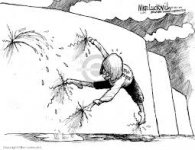Thunderhorse1986

Referees in England
- Joined
- Dec 22, 2015
- Messages
- 226
- Post Likes
- 0
Debate rising again possibly after incident in the France-Scotland game... comments about control/downward pressure in the act of scoring...
My understanding - if player is holding the ball, they only need to maintain contact with the ball while placing it into in goal (no "downward pressure required", no mention of control in 22.1(a) ). If the ball is in-goal on the floor then we do need downward pressure, but no control needed.
Does Nigel Owens get it wrong here? Can anyone give a definitive answer to the above.
1hr 10 minutes in...
http://www.telegraph.co.uk/rugby-un...ull-contact-nick-evans-gavin-hastings-listen/
My understanding - if player is holding the ball, they only need to maintain contact with the ball while placing it into in goal (no "downward pressure required", no mention of control in 22.1(a) ). If the ball is in-goal on the floor then we do need downward pressure, but no control needed.
Does Nigel Owens get it wrong here? Can anyone give a definitive answer to the above.
1hr 10 minutes in...
http://www.telegraph.co.uk/rugby-un...ull-contact-nick-evans-gavin-hastings-listen/




